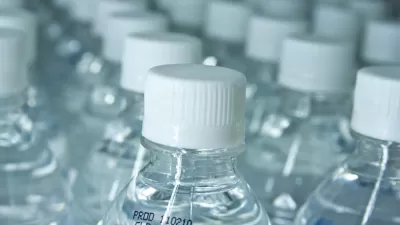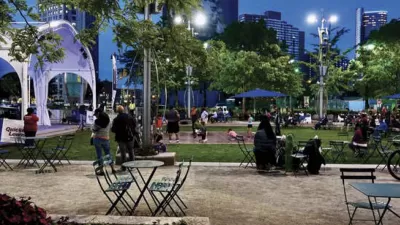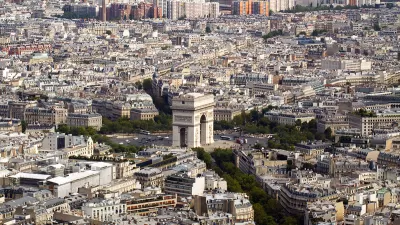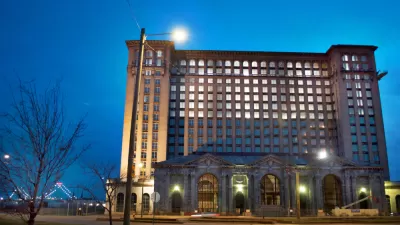Communities have demanded access to clean water for decades, in some cases. The coronavirus pandemic is compounding the struggle and illustrating the inadequacy of most local government responses.

We know that hand-washing with soap is a highly effective way to fight coronavirus, but for communities without access to potable water, safely following the hand-washing guideline is impractical and often impossible.
A 2018 study in the Proceedings of the National Academy of Sciences found that between 1982 to 2015, almost 45 million Americans accessed lead or chemical-laden water that did not meet health standards. Communities without access to clean water range "from small, rural towns in Kentucky to New Jersey’s densely populated city of Newark. And while clean water access isn’t only an issue for majority-black communities like Flint, Denmark, or Detroit, one study did find race to be the strongest correlative to lack of clean water," writes Khushbu Shah.
The new challenges posed by the coronavirus exacerbates injustices that these groups have experienced for decades. In supermarkets, when bottled water is available, shoppers are limited to buying only two gallons per person per visit.
Most local governments have not adequately addressed the issue. However, in Newark, New Jersey, workers have replaced about half of the city's close-to 19,000 lead-filled pipes since 2019. In other communities, residents are forced to rely on mutual aid and donations to ensure access to clean water before and during this time of national emergency.
FULL STORY: The pandemic has exposed America’s clean water crisis

Study: Maui’s Plan to Convert Vacation Rentals to Long-Term Housing Could Cause Nearly $1 Billion Economic Loss
The plan would reduce visitor accommodation by 25,% resulting in 1,900 jobs lost.

North Texas Transit Leaders Tout Benefits of TOD for Growing Region
At a summit focused on transit-oriented development, policymakers discussed how North Texas’ expanded light rail system can serve as a tool for economic growth.

Why Should We Subsidize Public Transportation?
Many public transit agencies face financial stress due to rising costs, declining fare revenue, and declining subsidies. Transit advocates must provide a strong business case for increasing public transit funding.

How to Make US Trains Faster
Changes to boarding platforms and a switch to electric trains could improve U.S. passenger rail service without the added cost of high-speed rail.

Columbia’s Revitalized ‘Loop’ Is a Hub for Local Entrepreneurs
A focus on small businesses is helping a commercial corridor in Columbia, Missouri thrive.

Invasive Insect Threatens Minnesota’s Ash Forests
The Emerald Ash Borer is a rapidly spreading invasive pest threatening Minnesota’s ash trees, and homeowners are encouraged to plant diverse replacement species, avoid moving ash firewood, and monitor for signs of infestation.
Urban Design for Planners 1: Software Tools
This six-course series explores essential urban design concepts using open source software and equips planners with the tools they need to participate fully in the urban design process.
Planning for Universal Design
Learn the tools for implementing Universal Design in planning regulations.
City of Santa Clarita
Ascent Environmental
Institute for Housing and Urban Development Studies (IHS)
City of Grandview
Harvard GSD Executive Education
Toledo-Lucas County Plan Commissions
Salt Lake City
NYU Wagner Graduate School of Public Service





























